Home / Success Stories / The city of Tilburg (NL) becomes smart and sustainable teaming with Libelium and Ericsson to develop an IoT environmental control platform
Do you want this case study in pdf?
Download it in English🇬🇧 and Spanish🇪🇸 directly to your inbox.
Download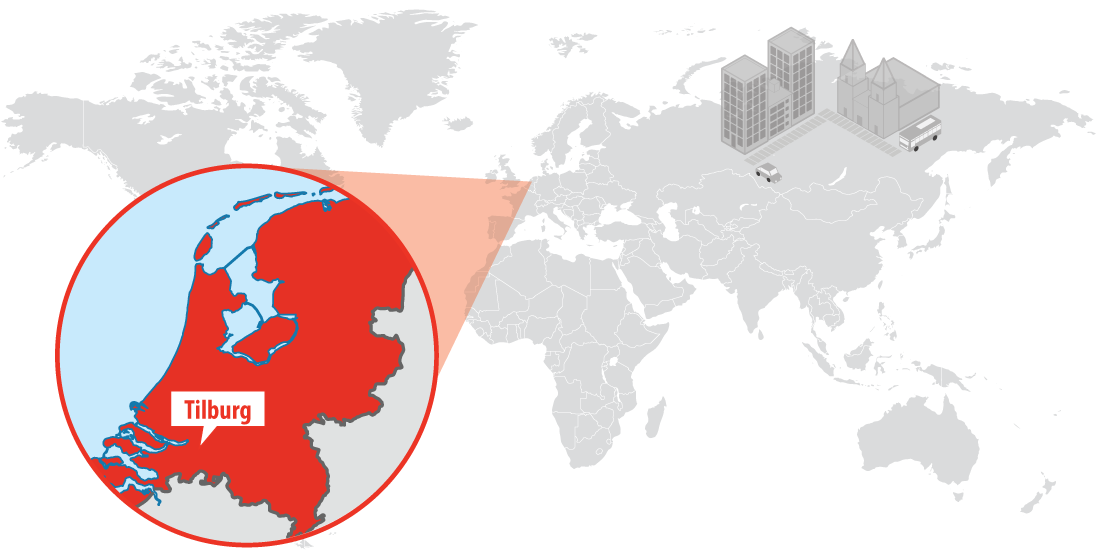
Project location
Ericsson, a global leader in delivering ICT solutions, uniquely delivers IoT capabilities from world-leading connectivity to award-winning industrial-IoT applications. The company has partnered Libelium in order to deploy a complete wireless sensor network to measure different parameters related to air and water quality such as temperature, humidity, pressure, Carbon Dioxide (CO2) Nitric Dioxide (NO2), Ozone (O3) and Particle Matter (PM 1, PM 2.5, PM 10). Related to water quality, the project includes pH and conductivity probes. Apart from this data, the sound and ultrasound levels, the number of Bluetooth and WiFi devices can also be measured during special events in an especially crowded area of the Piushaven.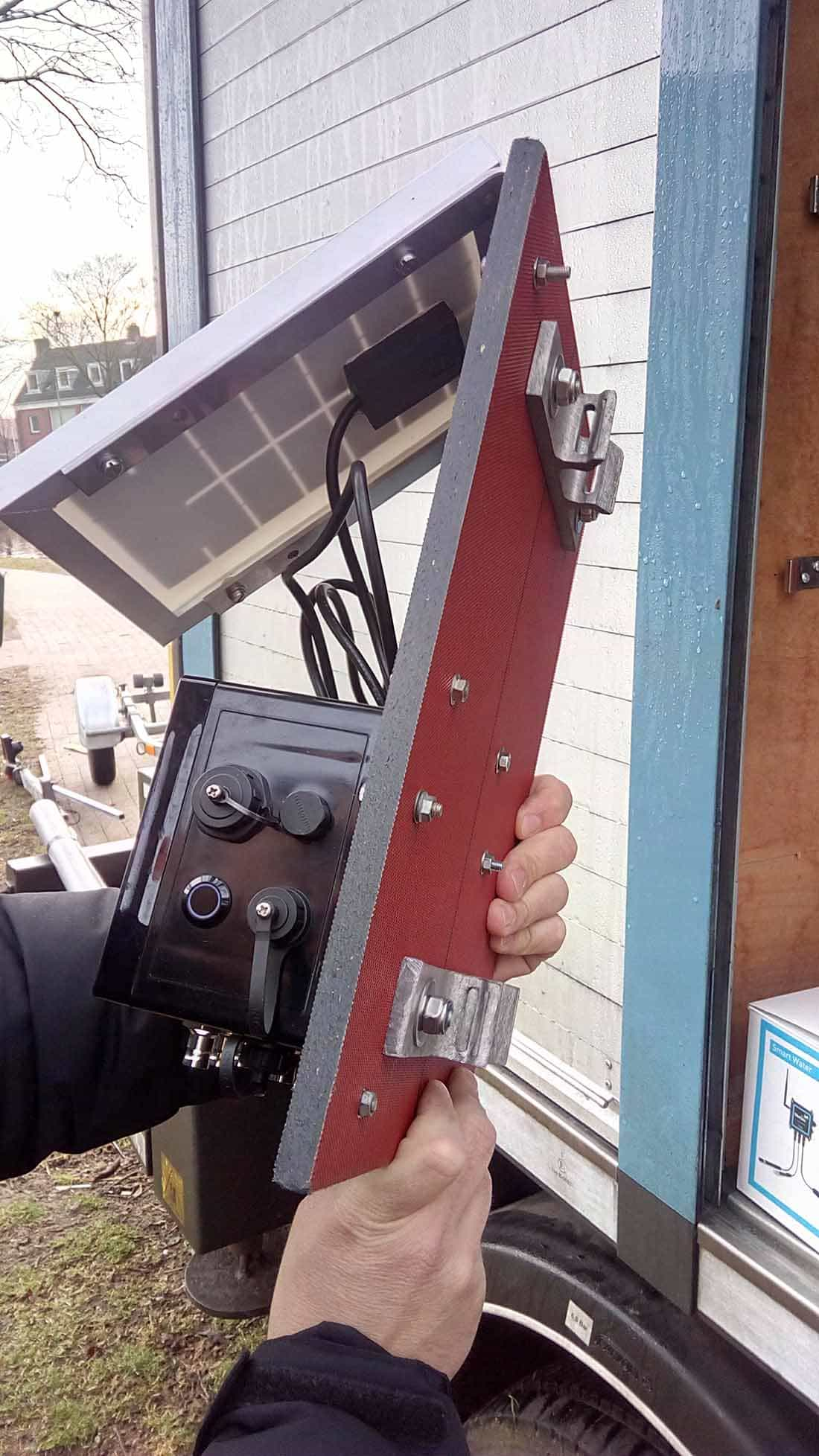
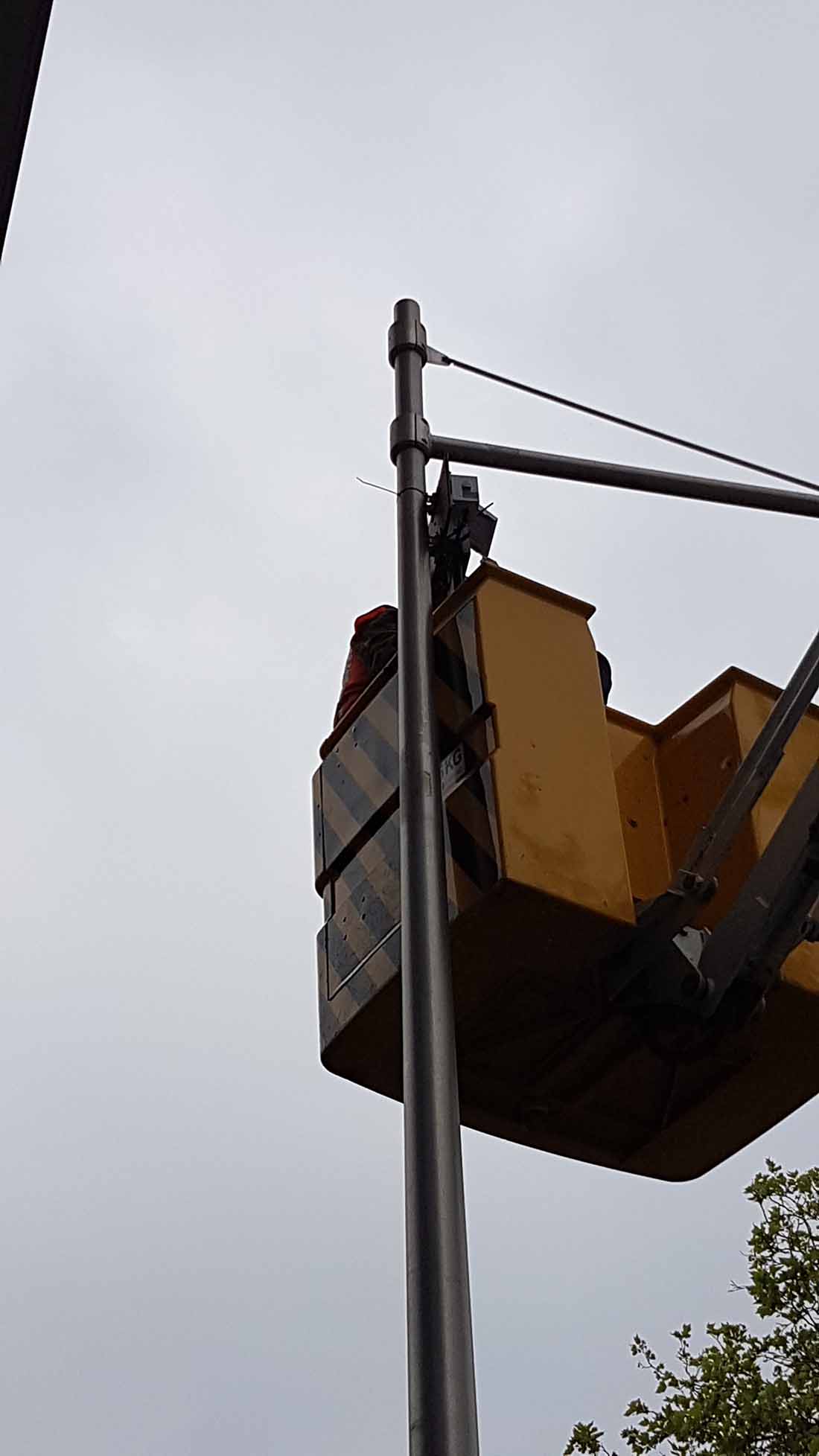
Installation process of Libelium devices
Air, water and noise level sensors
Libelium’s sensor network which has been deployed in Piushaven is composed of five Waspmote Plug & Sense! Smart Environment devices, one of them to measure temperature, humidity and pressure, three other sensors to measure Carbon Dioxide (CO2), Nitric Dioxide (NO2), Ozone (O3) and one more, a Dust Sensor, to measure the Particle Matter. Regarding water quality measurement, the network includes two Waspmote Plug & Sense! Smart Water sensors. One of them will collect information on water pH and the other one on Conductivity. In this case, three different calibration kits are included.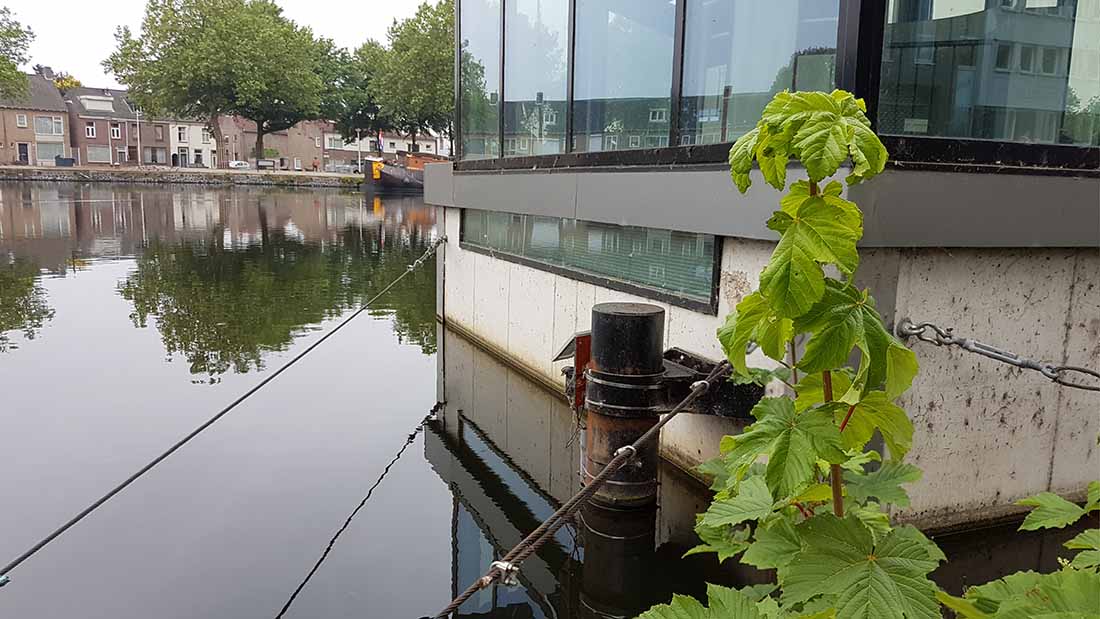
Water pH and conductivity are the parameters to be measured
In order to measure sound levels, two Waspmote Plug & Sense! Smart City sensors were installed. One of them consists of a microphone and the other one is an Ultrasound probe. Libelium’s Noise Level Sensor measures the parameter LAeq (Equivalent Continuous Sound Level, with A-type weighting), in dBA units. LAeq is the most frequently used parameter for noise measurements. It is now used by most countries as the metric of choice for measuring the exposure of workers to noise, as there is no time constant and it correlates reasonably well to the effect of hearing damage risk. It is common practice to measure noise levels using the A-weighting setting built into all sound level meters. All sensors are equipped with a 6,600 mAh rechargeable battery which works on solar power provided by a solar panel of 7 V providing a maximum current of 500 mA. A Meshlium Gateway, the Meshlium Scanner 802.15.4-PRO-AP completes the network elements to detect the MAC address of smartphones, hands free and cars by scanning WiFi signals.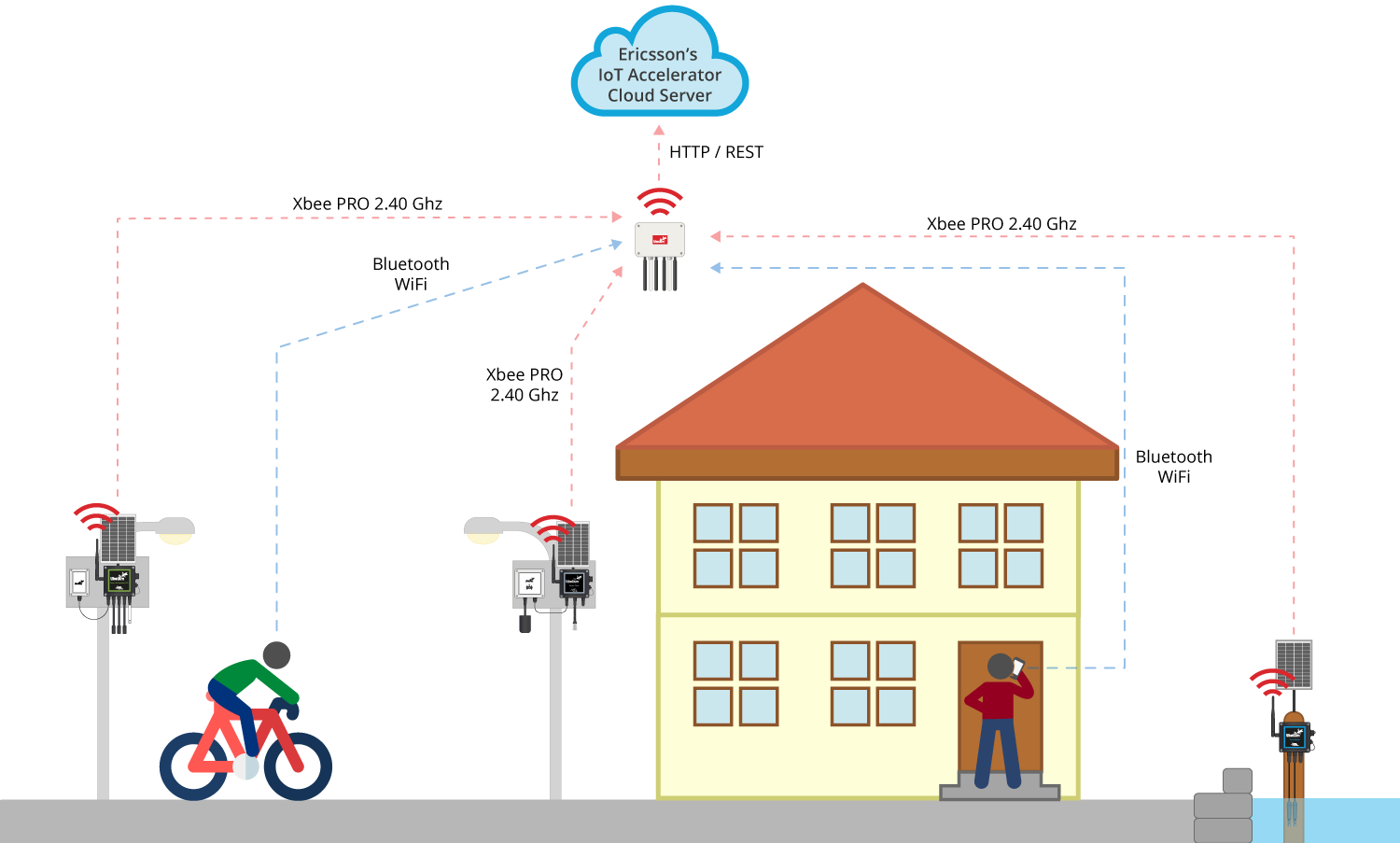
Diagram of Tilburg’s network
The communication among the different elements of the network takes place according to different protocols. Communication between the devices and the IoT gateway is carried out by an XBee-PRO working in the 2.4 GHz band. Between the gateway and the cloud the communication to download data periodically goes through Wi-Fi and Ethernet connection to the local database. All the collected data is analyzed in the cloud using Ericsson’s IoT Accelerator platform and visualized through a dashboard made to fit customer needs. In fact, the main requirement is to check the environmental status of the water standards, the air quality and the sound levels measured to be visualized on a public website. The goal of the project is to provide an open platform where city environmental quality can be monitored. Via analytics tools, Ericsson’s IoT Accelerator platform combines all measured data so new insights can be revealed. The ultimate goal is to have a predictive system to forecast people movements passing by (by foot, bike or car) depending on, for instance, the weather conditions and to indicate what impact will produce to the sound levels on the zone. Besides, as the city celebrates many events in and on the water, the system also provides a continuous monitoring of the water quality to give more insight as input for those events (like diving, swimming and rowing races).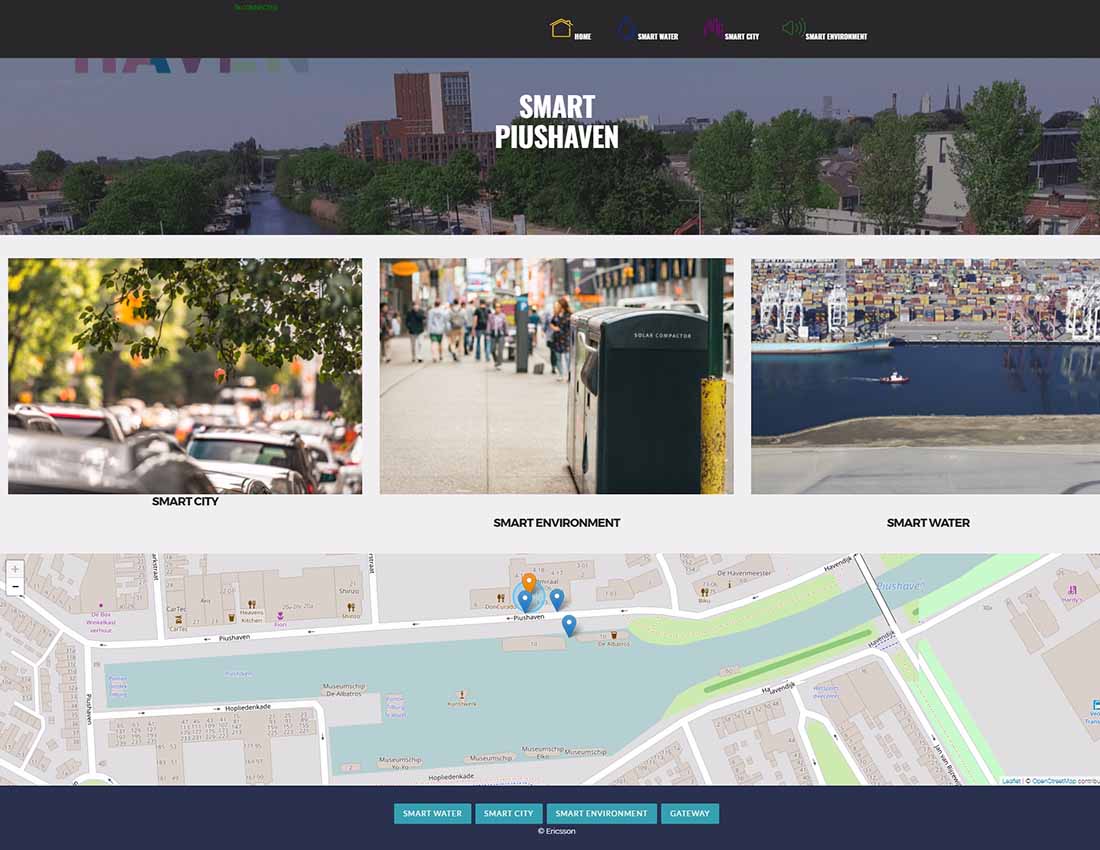
Dashboard screenshot
Although periodical checking of air and water quality is relevant to citizens, the key point of this project is sound level monitoring, which can be used to comply to the legal thresholds. When complaints are received, the Council can glance at the real sound levels instead of having to go there to measure it. This is where the most remarkable part of return of investment lies as well as when big amounts of data are collected and can be correlated with each other.Quickness to find solutions
The City of Tilburg benefits from sensor data in two different ways: citizens and visitors can experience a clean and healthy environment and the Tilburg government provides access to real-time air and water quality data to demonstrates the commitment to their citizens. “Those living in the Piushaven neighborhood can stay informed about living conditions through the Smart Tilburg Dashboard. Additionally, Tilburg uses the data collected from sensors to create efficiencies in the way they work. Tilburg technicians no longer needs to be onsite in this neighborhood to test water and air quality or sound pollution. When complaints come in Tilburg Council can check the dashboard for real-time sound levels and with this data at their fingertips, can also reduce delays in response time”, Mark Damen, Innovation & IoT driver at Ericsson, states. “Quickness to find solutions and in sorting out technical questions in the most satisfying way to fulfill customers’ needs are the most important reasons for the choice of Libelium as a partner” according to Ericsson’s Engineer Explorer and Engineer, Sergio Abreu. For more information about our products contact the Libelium Sales Department. If you want to download the article in Spanish, please click here.More info:
References:
Download it in English🇬🇧 and Spanish🇪🇸 directly to your inbox.
Download*TERMS AND CONDITIONS TO USE LIBELIUM CONTENT. Libelium is the owner of all images provided on the website and it can only be used quoting the source. Any video, photograph, diagram, infographic or logo cannot be used or transformed without Libelium authorization. You can request the files in high resolution to publish on your website or to insert in marketing flyers always using Libelium logo and linking with Libelium website. If you are going to publish the article in a website or media or in a white paper or research study, it must be done including all the references and mentioning Libelium as the source of the content. © Libelium Comunicaciones Distribuidas S.L. – www.libelium.com
Stay up to date in IoT!
Sign up to our newsletter and receive the latest, exciting news.
More than 18 years of experience in IoT support us.


















© Libelium Comunicaciones Distribuidas S.L. | Terms And Conditions | Privacy Policy | Cookies Policy | Security Policy | Reporting Channel